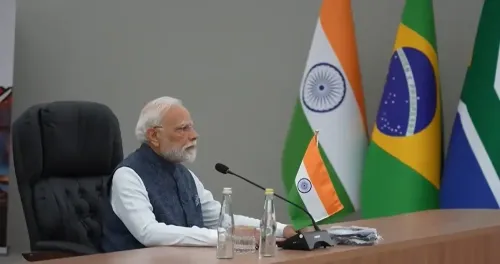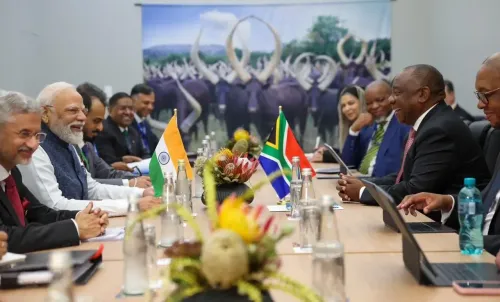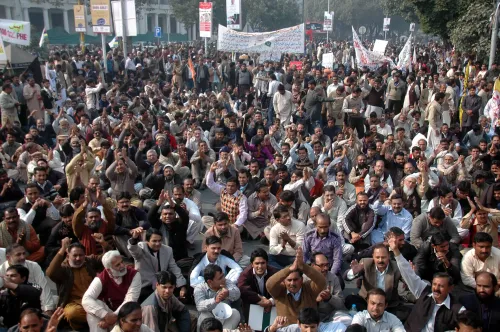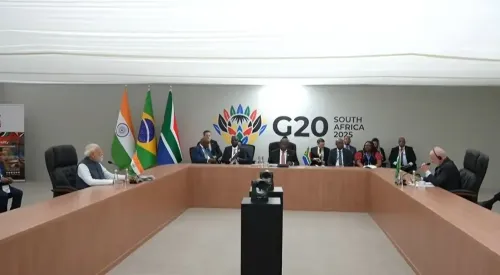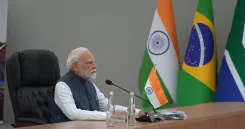How Did Japan's PM Honor Hiroshima Atomic Bomb Victims?
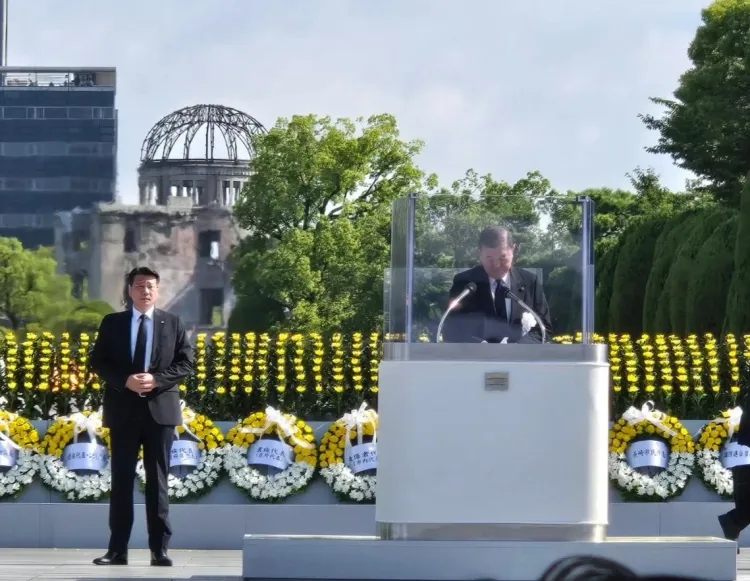
Synopsis
Key Takeaways
- Prime Minister Ishiba expressed deep condolences to Hiroshima bombing victims.
- Japan reaffirms its commitment to three non-nuclear principles.
- Emphasis on preventing future nuclear tragedies is crucial.
- Japan aims to lead global efforts for nuclear disarmament.
- The NPT is vital for international nuclear safety.
Hiroshima, Aug 6 (NationPress) Japan's Prime Minister Shigeru Ishiba expressed his heartfelt condolences on Wednesday to the victims of the US atomic bombing of Hiroshima as the nation commemorated the 80th anniversary of this tragic event. He reaffirmed his dedication to uphold Japan's three principles: not to possess, produce, or allow the introduction of nuclear weapons.
During his speech at the Hiroshima Peace Memorial Ceremony, Ishiba stated, "Eighty years ago, a single atomic bomb unleashed a catastrophic explosion that claimed the lives of over 100,000 individuals. Those who survived endured unimaginable suffering. As Prime Minister, I extend my deepest condolences to the souls of the atomic bomb victims and my sympathy to those still facing the aftermath of this disaster."
He emphasized the necessity of ensuring that the tragedies of Hiroshima and Nagasaki are never repeated and affirmed Japan's role in guiding the international community towards a world free of nuclear weapons. Ishiba acknowledged the increasing divides within the global community regarding nuclear disarmament approaches, which have complicated the security landscape, and he underscored the importance of striving for a world devoid of nuclear conflict under the framework of the Treaty on the Non-Proliferation of Nuclear Weapons (NPT), which serves as the foundation of global nuclear disarmament and non-proliferation efforts.
"By steadfastly adhering to the 'Three Non-Nuclear Principles,' Japan will spearhead the international community's push for a world without nuclear armaments. This is our mission as the only nation that has endured the horrors of nuclear warfare," he asserted.
In a press conference following the memorial event, Ishiba dismissed the notion of Japan participating in a NATO-like nuclear-sharing arrangement with the US, affirming, "The government firmly upholds the three non-nuclear principles, and we have no intention of revising them," as reported by Kyodo News.
Ishiba highlighted the necessity of exploring ways to enhance the effectiveness of extended deterrence provided by the US, which includes its nuclear arsenal. He added, "This does not contradict our ultimate goal of achieving a world free from nuclear weapons."
The bombing of Hiroshima occurred on August 6, 1945, when a uranium bomb was released by the US bomber Enola Gay, resulting in the deaths of approximately 140,000 people by the year's end during the closing stages of World War II. Japan has adhered to its three non-nuclear principles while being safeguarded under the US nuclear umbrella.
Ishiba pointed out the challenging security environment surrounding Japan, noting that certain neighboring nations possess nuclear arms. When asked about his plans to commemorate 80 years since Japan's defeat in World War II, he refrained from providing specific details but conveyed a strong sentiment that Japan should never engage in warfare again.
He also visited the Hiroshima Peace Memorial Museum, which documents the devastation caused by the atomic bombing. In a post on X, he remarked, "Following the ceremony, I revisited the Peace Memorial Museum. As the only nation capable of sharing the horrors of the atomic bomb with the world, we are committed to preserving the memory of this tragic past and leading global initiatives to prevent such disasters from recurring."

